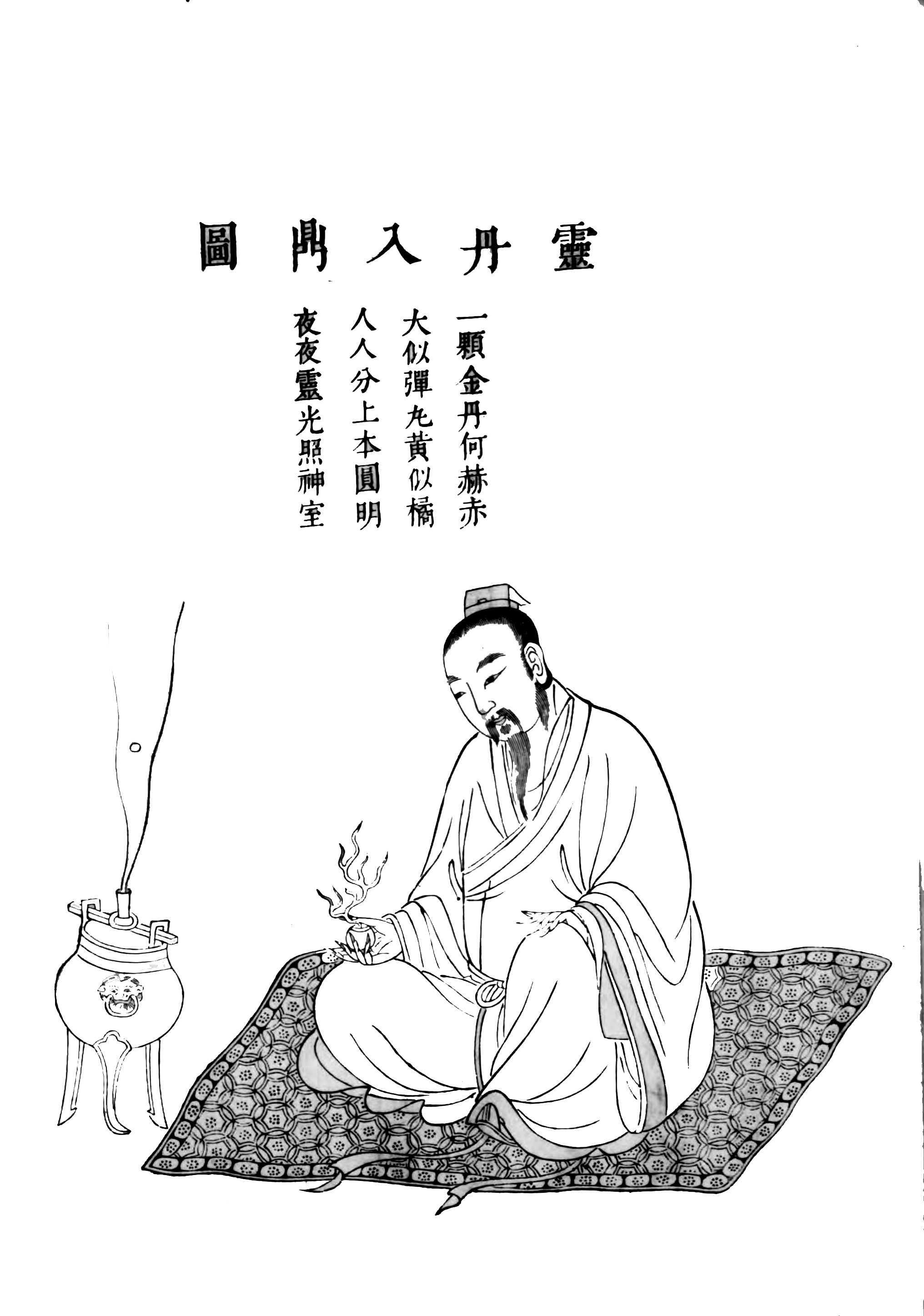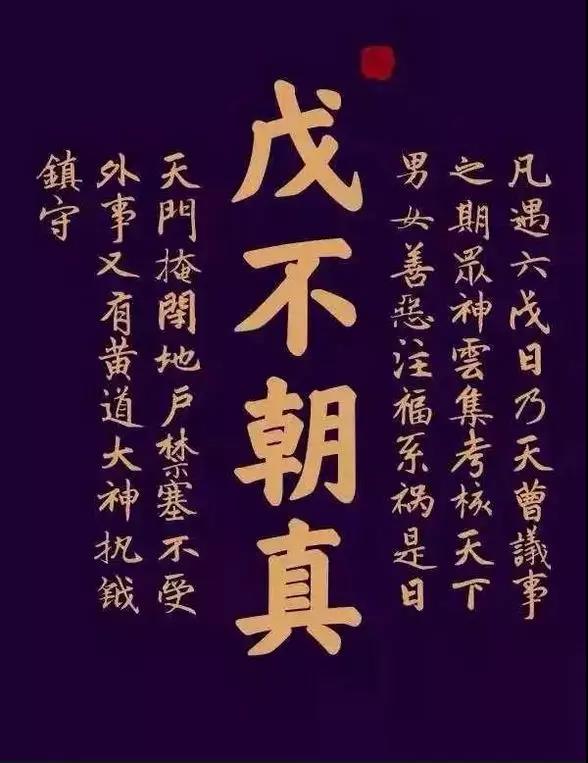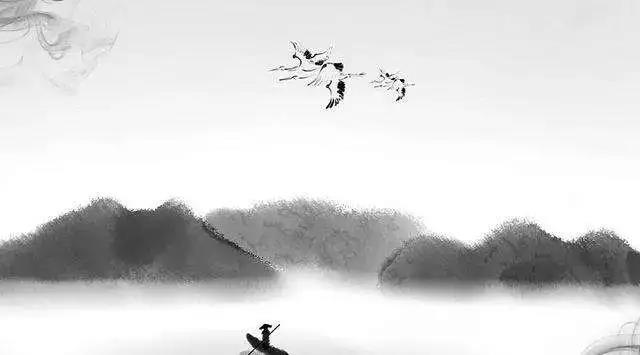The harmony in Eastern and Western conception:
Taoism and Classical Greek philosophy.
Henrik Klindt-Jensen, University of Aarhus, Denmark
Preliminary remarks
In this paper, I am going to clarify the relation between the concepts of harmony in Eastern thought - particular in the Taoism - and in the western thought, particular in Classical Greek Philosophy.
Chinese versus Greek philosophy in general
In the ancient Greece, the discipline philo-sophia “philosophy” was born as the concern and love for wisdom; Pythagoras seems to be the first user of the word: he would not proclaim himself as being a wise man, a sophos, but through rationality he could reflect wisdom in a way, where it can be of understanding and use for people of less wisdom; he thus conceived himself as a philo-sophos, a “philosopher” in stead of a sophos.
Furthermore, Pythagoras was a mathematician, discovering the law for harmony in the tone pitches with regard to length of the strings. The Greek Philosophy is born as a Philosophy of nature, not necessary denying the existence of the gods, but not relying on these. The giving up of the gods as the explanation for the world does not imply the old Greek belief in harmony. Now it is found in the co-existence of several elements of nature, by Empedocles four in number. Also Chinese Philosophy states a minor number of elements; the balance of these must also be found in man and thus indirectly in society.
We find a common feature in the conception of harmony in the classical Greek Philosophy and Chinese Philosophy: the harmony is prepared in nature, but man must seek to accomplish the harmony within the society and the concrete individual harmony in body and mind. Here we find the crucial concept of self-control in the Greek Philosophy. It is expressed in the old virtue sophrosyne. If we shall have harmony in society, we must have harmony with ourselves - through sophrosyne.
The Chinese Philosophy is a Philosophy of cosmos as well as philosophy of life. Since the Greek Philosophy is rather reflective, it more separates these areas of thoughts. Born as a thinking of nature, the Greek Philosophy only later reflected upon life – beginning with Socrates. Socrates inherited also wisdom, not concerned as Philosophy before him: he followed the inscription over the entrance to the Apollo Temple in Delphi, stating “Know thyself” and “Not too much”. Such wisdom is a part of Chinese philosophy from its very start – since we have given a more broad definition of philosophy in China. But this wisdom becomes part of Greek Philosophy through Socrates. Socrates was provoked by the sophists, stating relativism and lack of obedience to the gods, the denial of the old values, the virtues belonging to the former aristocratic society. The sophists belonged to the new time, not based upon cultivating inherited land with the use of slaves, a land that originally was appropriated by warfare and courage; the sophist represented the new culture that was based upon trade and craft. Socrates wanted to restore the old values, to reformulate them in a way, where they could enter into the new time. Socrates became critical about the new democracy, where the old values, the virtues where lost.
The way forth worth would be a kind of general education; he began with the youngsters on the square of Athens. The new time provided a breeding ground for drift towards egoistic power and greediness. This meant the break of the old harmony. The task was to create a new harmony. You would have to begin with your own self-control, your modesty – which was one of the old virtues: sophrosyne. Socrates’ pupil Plato continued this project of education by his school, called the Academy. Here, he draw Socrates more concrete broader education back into the mythical and metaphysical perspectives. Thus we find the myth of the lost Golden Age, where gods and men had been together, found by Hesiodus etc. The development had been decay to Hesiodus’ own Iron Age. The task was thus to get a memory of the old time and to bring it into the new society. Also in Chinese philosophy, we find a conception of the history in terms of decay. Especially in Confucianism, the task for the philosophy is seen as bringing back the golden time of the early Chou Dynasty, or at least features of it. Socrates, Plato and Aristotle understood themselves in an opposition to the actual democratic way of government of the state; they more believed in some kind of Aristocracy, but not in the decadent form of the reactionary rule of the 30 tyrants, which for few years interrupted the democratic development. The Chinese philosophers – at least in principle - were often true to the actual aristocratic empire, but saw that it was in need of improvements. Thus the Chinese and the Greek philosophers can be compared: earlier on things were much better, but now things are going wrong, people are not finding the harmony inside themselves, and thus the harmony of the state cannot be maintained. Also the leader/ the leaders of the state must train in a way, where he or they can lead himself or themselves, and lead the state in the benefit for all. Philosophy is the medicine for a sick society and the ultimate tool for its leader. Especially Socrates then could have been a fine Chinese philosopher. His devotion for his city-state, polis, namely Athens, his abundance of power in his own behaving, his desire for the harmony and modest self-knowledge is quit worthy for the Chinese castle, as well as for the square of Athens. His insistence on fine old values, developed in aristocratically harmony, is rather Chinese. His humor is of Chinese greatness. And his irony would have killed him in China, just as it did in Athens. But the temperament of the Chinese philosophers themselves goes more in the direction of the later Stoic philosophers:
Later on, in the Hellenistic philosophy and especially in the Epicureanism, we find the concept of ataraxia, meaning peace in mind; this must be compared with the Taoistic “wu wei”, “do nothing”: the “wu wei” expresses, that you should not hesitate with doing all kind of desperate things, be aware of what is going on and act in calm accordance with this, so that changes happen though you and not from you, according to the Tao: In Tao Te Ching, it is stated: “Let nothing be undone[i]. Ataraxia is the attitude, where you calmly take part in life in awareness of all the fight for power, reputation etc.
Later again, the stoic philosophy gets impact in the Roman Empire through Cicero etc. So in the end, also the classical western philosophy becomes critical sustaining an empire like the Chinese philosophy was from its very beginning. At that time, however, the classical philosophy was not Greek any longer, but Roman. Paradoxically, the way to harmony goes through some kind of war. Both Chinese and Greek philosophy has origins in war cultures. To be a soldier is to be a man of virtue, and the virtue makes society possible. War is the condition but peace is the way forth worth. You must fight with yourself in order to get harmony, balance, but the fight comes from the war. Philosophy is a proceeding of the war turned to a fight for peace and harmony.
Thus the pre-Socratic philosopher Empedocles sees the continuing changes between Philotês/ Philia - Friendship, Love - and the Neikos – Strife - as the cosmic and metaphysical principle[ii]. The changes are expressed by the verb metaballein and the substantive metabolê,[iii] which is also the crucial expression of change in the second part of the Parmenides-dialogue; we shall return to this later. Taoism, as grounded on I Ging, is a Philosophy of changing. Thus harmony is gained through the change of the outer war into and inner fight between opposite feature of our body and mind, and through a strengthening of both in inner balance.
We must also mention Aristotle's concept of the golden mittel way. The classical Greek seek for harmony will also be a seek for avoiding the extremes. We shall further regard four themes in the relation between classical Greek philosophical way of harmonizing, and Taoistical way of harmonizing – the first theme will be the mentioned strengthening:

流泪
0人

鼓掌
0人

愤怒
0人

无语
0人

欢迎投稿:
Email:server#daoisms.com.cn(注:发邮件时请将#改为@)
免责声明:
1、“道教之音”所载的文、图、音视频等稿件均出于为公众传播道教文化之目的,并不意味着赞同其观点或证实其内容的真实性,我们不对其科学性、严肃性等作任何形式的保证。如其他媒体、网络或个人从本网下载使用须自负版权等法律责任。
2、本网站内凡注明“来源:道教之音”的所有文字、图片和音视频稿件均属本网站原创内容,版权均属“道教之音网站”所有,任何经营性媒体、书刊、杂志、网站或个人未经本站协议授权不得转载、链接、转贴或以其他方式复制发表。已经本网协议授权的媒体、网站,在下载使用时必须注明“来源:道教之音”, 违者将依法追究责任。
3、凡本站转载的所有的文章、图片、音频、视频文件等资料的版权归版权所有人所有,本站采用的非本站原创文章及图片等内容均标注来源,由于无法一一和版权者联系,如果所选内容的文章作者认为其作品不宜上网供大家浏览,请及时用电子邮件或电话通知我们,以便迅速采取适当措施。

丹道之道 对生命的渴望,对自我的超越,对生死和宇宙本源的追问,是人类的本能之一。先秦时期,已成为中国主流...[详细]

提及观世,可谓大名鼎鼎,在佛教有观世音菩萨,在道教有慈航真人观音大士。那么,道教的观音信仰典出何故?其...[详细]

初入道门,日日晨钟暮鼓,日子长了,却发现每月总有几天庙内安安静静,不用举行早晚功课,也不烧香,不知道为...[详细]

汉代的神仙方术著作《周易参同契》是世界上现知最早的外丹理论著作,同时也是讲述内丹术的经典。《周易参同契...[详细]

摘要 :天籁一词是《庄子齐物论》里的重要概念。它本身为一比喻,故有本义与喻意之别:本义是指它实际所指,喻...[详细]